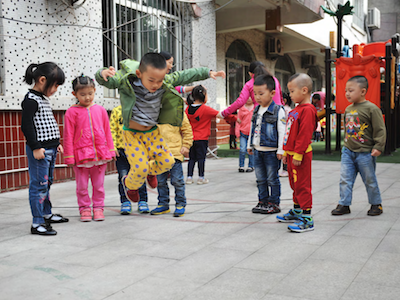The Child Friendly Cities Initiative (CFCI) is a UNICEF-led initiative that supports local governments in realizing the rights of children at the local level using the UN Convention on the Rights of the Child as its foundation. It is also a network that brings together government and other stakeholders such as civil society organizations, the private sector, academia, media and, importantly, children themselves who wish to make their cities and communities more child-friendly.
This course describes the core components and key steps to be taken for a city/municipality to be recognized as child-friendly by UNICEF.
Learning objectives
By the end of this course participant should be able to
- define what the Child Friendly Cities Initiative (CFCI) is.
- define how the CFCI is linked with the Sustainable Development Goals and other strategic frameworks.
- identify ways to apply a child rights based approach to the CFCI.
- define the different steps for a city/municipality to becoming child-friendly.
Audience
This course is mostly targeted to UNICEF staff but it can also be useful for anyone working on the Child Friendly Cities Initiative (CFCI).
Primary audience: UNICEF staff in social policy, advocacy, child protection, education, fundraising and communication.
Secondary audience: National and local government, staff working on the CFCI, Civil Society, Organizations, Academia.
Structure
- Introduction to the course
- Module 1: Definition, vision and context of the CFCI
- Module 2: The journey to becoming a Child Friendly City
- Assessment (Final quiz)
Length
The amount of time to complete this course is estimated to approximately 3 hours.
Contact details
For content queries, please contact Diana Vakarelska (dvakarelska@unicef.org) or Marion Libertucci (mlibertucci@unicef.org)
Acknowledgement of contribution to the content of this course:
Marion Libertucci (mlibertucci@unicef.org)
Reetta Mikkola
- Louise Thivant
